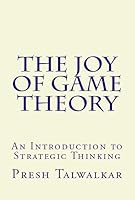
The game theoretical foundations of morality

Tit for tat is a strategy which, according to game theory, is the most effective choice for iterated games based on mutual cooperation or defection. Both players benefit if they cooperate, but one benefits and the other loses out if only they defect, and both lose out to a lesser extent if they simultaneously defect. As abstract as such games
... See moreFarnam Street • Tit for Tat

[...] morality is not a set of rigid and stereotyped principles, but a flexible context-dependent calculator of what one must do to secure a good reputation and attract future cooperative investment from others.